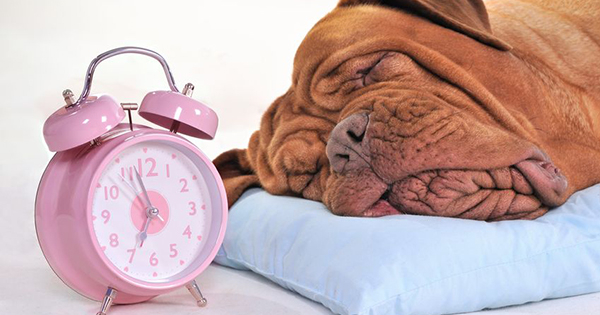As you relax in front of your favorite television program while your faithful friend naps by your side, you may find yourself chuckling when the loud snoring begins. Frequent bouts of snoring in dogs are no laughing matter, however, and they should be addressed to your veterinarian to determine if your dog suffers from canine sleep apnea.
What Is Canine Sleep Apnea?
Sleep apnea is a sleep disorder in which a dog experiences a disturbance in respiration that occurs during sleep. This disrupts the dog’s natural sleep cycle. When this condition goes untreated, sleep deprivation can set in, which can adversely affect the dog’s health. In some cases, the disruption of respiration can be life threatening.
Risk Factors
Breeds that are most commonly afflicted with the sleep disorder are the brachycephalic breeds, or those with pushed in faces and shortened airways. These dogs can have narrow tracheas, elongated soft palates, abnormally small nostrils and sacs that protrude from the larynx into the airway. Any of these abnormalities can contribute to the disruption of breathing while the dog is asleep. Brachycephalic breeds include:
- Pugs
- English bulldogs
- Boston terriers
- French bulldogs
- Pekingese
- Shih tzus
- Boxers
Other dogs that can be afflicted are those that are obese. The excess fat pushes on the airway when the dog is lying down and relaxed, and this causes a partial airway obstruction. Additional contributing factors include:
- Periodontal disease, such as when an oral abscess infiltrates the sinus passage
- Upper respiratory infection
- Tumor or foreign body that causes a partial obstruction in the airway
- Hot and humid weather
- Allergies
The Effects of Disrupted Sleep
A dog with sleep apnea can stop breathing or experience shallow breathing multiple times over the course of sleep. These respiratory disruptions typically last only seconds before the dog awakens with a gasp and resumes breathing normally. During those seconds, however, the dog’s blood is not being adequately oxygenated. Optimal oxygen levels in the blood are essential for cellular health. Dogs whose sleep cycles are repeatedly disrupted develop sleep deprivation, which makes them lethargic. This results in less physical activity and weight gain, which then puts the dog at risk for other health problems, such as diabetes, high blood pressure and heart disease.
Symptoms of Sleep Apnea in Dogs
The telltale sign of sleep apnea in dogs is recurrent loud snoring. These additional symptoms may also be observed in dogs with this condition:
- Sleep that is disrupted by gasping or choking
- Breathing that stops intermittently for several seconds
- Lethargy during awake hours
If your dog exhibits any of the signs of sleep apnea, you should schedule an appointment with your veterinarian for an evaluation.

Treatment of Canine Sleep Apnea
If your dog is overweight, your veterinarian will recommend a weight loss diet. The most common treatment for brachycephalic breeds is surgical correction of any structural abnormalities to open up the airway and make breathing easier. Other treatment methods for sleep apnea in dogs may include antihistamine medications if the dog suffers from allergies and a dental procedure if an abscessed tooth is the culprit. Diagnostic imaging tests may be performed if a foreign body or tumor is suspected. During the summer months, you can increase your dog’s comfort and respiration by letting your furry friend snooze in an air-conditioned room.

